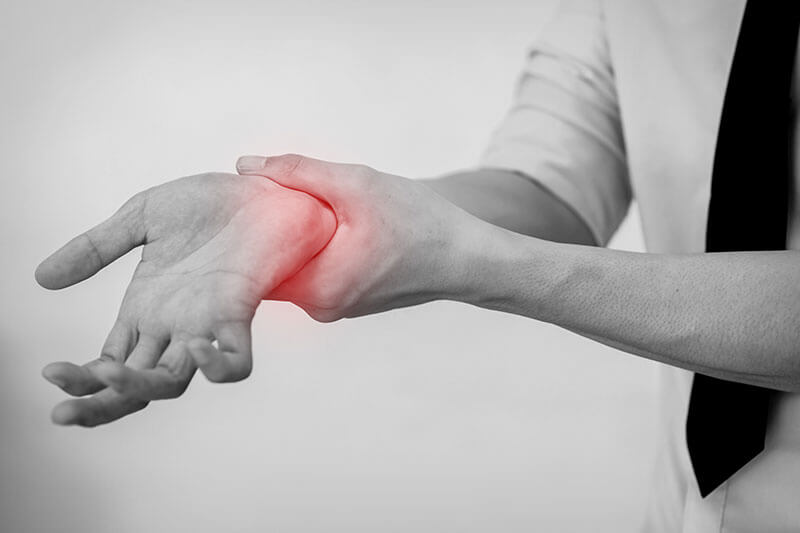Medical Marijuana for Lupus
Cannabis has been used as a medication for millennia. From treating pain to melancholy, we’ve recognized that cannabis has beneficial medical applications. With many states legalizing cannabis for medical purposes, doctors and scientists are looking to see if it can be used as a holistic treatment for different conditions.
Scientists and doctors are now recommending cannabis as a treatment option for a condition called lupus.

What is Lupus?
Lupus is a chronic autoimmune disease that can damage any part of the body, such as skin, joints, and organs. The signs and symptoms of lupus can last for a couple of weeks to several years. There is currently no known cure.
People with lupus have an immune system that cannot recognize the difference between the body’s natural cells and harmful invading cells. Because of this, the immune system creates antibodies to attack and destroy the body’s healthy cells.
Lupus is a common disease, affecting 5 million people worldwide. As many as 16,000 new cases of lupus are reported each year.

Symptoms of Lupus
Lupus can affect many of the body’s systems and organs, creating quite a few symptoms. Symptoms can change over the course of the disease, as well as being inconsistent in duration.
The most common symptoms of lupus include:
- Extreme fatigue
- Headaches
- Painful or swollen joints
- Pain in chest when breathing deeply
- Butterfly-shaped rash across cheeks and nose
- Fever
- Anemia
- Swelling in feet, legs, hands, or around eyes
- Sun or light-sensitivity
- Hair loss
- Abnormal blood clotting
- Fingers turning white or blue when cold
- Mouth or nose ulcers
Treatment of Lupus
Currently, there is no treatment for lupus, so physicians focus on treating the symptoms of the disease. The most common treatments include:
- NSAIDs for pain relief and fever
- Corticosteroids to reduce pain and inflammation
- Immunosuppressants to calm a dysfunctional immune system
- Antimalarial drugs to treat blood clotting, inflammation, and rashes.
The problem with the long-term use of these medications is that they can lead to serious side-effects including renal damage and cardiovascular issues.
How Cannabis Can Help Treat Lupus
The endocannabinoid system has receptors located throughout our bodies, including the systems that regulate immunity. Finding out exactly how cannabinoids interact with the immune system still requires research, but there is already mounting evidence that cannabis can help treat many symptoms associated with lupus.
- Suppress the immune system: Cannabis has been shown to suppress the immune system by activating myeloid-derived suppressor cells (MDSCs). MDSCs may help lupus by dampening the hyperactivity of the immune system.
- Relieve inflammation: A study conducted indicates that cannabis can alter the immune system by keeping it from switching on the inflammatory response.
- Pain relief: There have already been several studies done on the ability of cannabis to relieve pain. This coupled with inflammation are two of the most common symptoms of lupus, suggesting cannabis might be able to help.
Administering Cannabis for Lupus
There are many methods of ingesting cannabis and each has its own benefits and detriments. For example, smoking cannabis may deliver quick relief, but also releases carcinogens and an open flame can burn away many of the cannabinoids. Vaporization may be healthier than smoking, and it does deliver relief faster and with less cannabis, but the relief is not long-lasting. Edibles are another option for administering cannabis and provide long-lasting relief but can take time to kick in, which is not ideal when in need of quick relief.
When it comes to lupus, the method of ingestion can be important, especially if you’re a patient on other medications.
- Vaporization: This is the ideal method for patients who are still on prescribed medications.
- Cannabis oil: This can be taken via a syringe or capsules and is ideal if you’re a patient wanting to switch to a cannabis-only regimen.
- Edibles: Edibles can provide long-lasting relief if you have the extra time to wait for them to kick in. This can be particularly helpful if lupus symptoms are preventing you from sleeping at night.
- Topicals: Topical creams and ointments infused with THC and CBD can help with pain and inflammation in the joints.
Best Strains for Lupus
Finding the right strain can be a process of trial and error. The strain that works best for one patient may not provide the same benefits or success to another. Some patients respond better to CBD oil or a strain with a high-CBD to THC ratio, while others prefer equal amounts of THC to CBD. Other patients respond better to a high-THC strain of cannabis. Some strains to investigate include:
- Cannatonic: This strain has a high CBD to THC ratio, sometimes providing as much as 17% CBD compared to 6% THC. It’s good for pain, stress, and inflammation symptoms.
- Harlequin: Another high CBD strain, Harlequin has a 5:2 CBD to THC ratio. Harlequin is good for those suffering from pain, inflammation, and depression.
- Sour Tsunami: This high CBD strain, Sour Tsunami, boasts properties that relieve fatigue, pain, and inflammation.
- Girl Scout Cookies (a.k.a. GSC): This award-winning strain is noted for its high levels of THC. GSC helps stress, pain, depression, and insomnia.
- The White: Routinely testing at 20-28% THC, The White is great for insomnia, depression, pain, and inflammation.
- Death Star: This high-THC strain boasts levels of 20-24%. Death Star helps with pain, insomnia, stress, and depression. It might also help kick nausea as well.
The Takeaway
Cannabis can be used as a treatment for many of the symptoms of lupus. The medicinal plant has been used for millennia to treat pain, inflammation, anxiety, insomnia, and depression. Keep in mind however that because lupus can damage organs and body tissues, it should never be self-diagnosed or self-treated. Always talk with your doctor before beginning a cannabis regimen, especially if you are taking other medications.
It is important to note that the use of cannabis for medical purposes should always be done under the guidance and supervision of qualified medical professionals. Our medical marijuana doctors in Sarasota and in other locations can provide expert advice, assess your specific condition, and help determine the appropriate dosage and strains of cannabis that may be beneficial for you. Consulting with a knowledgeable healthcare provider is crucial, particularly if you have underlying health conditions or are taking other medications.






